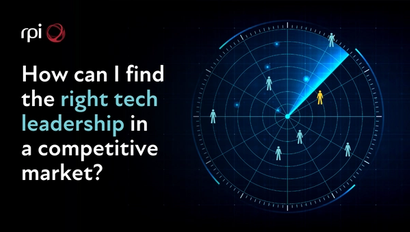In business data, the tension between ‘can’ and ‘should’ is only getting stronger. There’s more information available than ever before, along with more ways to gather, interpret and use it. All in all, that remains a good thing, but there are a set of assumptions that businesses make which, though they aren’t wrong, aren’t necessarily right either.
‘Data is good, so we should use more of it in more places.’
‘Data can enhance the customer experience, so more of it will enhance the experience further.’
‘Data can tell us what our customers want, so more data will tell us even more.’
Each of the above relies on a very large ‘it depends’. There is an ethical as well as a commercial dilemma with data, and the question that organisations need to ask is, ‘Just because we have the tools for this, should we do it?’
Informed Consent
Throughout the negotiation, discussion, and long legislative process of GDPR, one phrase you will have heard a lot was ‘informed consent’. It defined the standard for a legal and legitimate ‘opt-in’ to share personal data, and it set a lot of conditions for that. That includes asking for consent (12 conditions), recording content (2 conditions) and managing consent (6 conditions).
High as that bar is, businesses can and do meet the requirements, which is, ironically, exactly why there’s an ethical danger. The tick-box exercise of checking that data operations are legally watertight can act as a smokescreen for more meaningful ethical questions. Precisely, whether something is ‘right’ simply by virtue of being ‘legal’.
There are boxes to tick and permissions to give for any email or newsletter opt-in, and simply arriving on a website places a consent box in front of the visitor for them to accept cookies. If they tick the right boxes, they’ve legally opted in and you’re legally covered. However, it’s well known publicly, and an open secret in the law, that nobody reads any terms and conditions. While a business won’t be fined for that, they are in danger of creating a negative customer experience.
It's not your ‘fault’ that your customer didn’t read the full terms and conditions, but you will deal with the consequences. The reality is that whatever consent and permission you have from your audience, they don’t know about most of it. That means that the extent of your data and how you can use it will come as a surprise to them, and though no intrusion has taken place, it can still feel intrusive.
‘Creepy’ data
We leave traces of our activity everywhere we go online. That ‘digital dust’ combines with the data that we share consciously and deliberately, and quickly gathers into a very extensive picture of our lives, habits, and behaviours. That’s music to the ears of many companies — ads can be more targeted, products more tailored, and communication more personal. All that is true, but any organisation needs to consider the cost.
The information you reveal that you have will often leave your audience asking ‘how did they know that?’. They might feel spied on and watched, which is never comfortable. You will probably have had moments when you’ve seen a piece of marketing that’s very specific to a product you’ve been thinking about, but that you don’t remember researching or browsing. You might have felt more uneasy than inspired, and that’s not a feeling you’ll want in your own customers.
Just as your data gathering can appear clandestine, it can also be completely facile, which is a very different experience, but still a negative one. Less sophisticated data follows users around the internet — you’ll have experienced it too, having bought, say, a vacuum cleaner, then seeing nothing but vacuum cleaner banner ads for the next week. It’s creepy too, but doesn’t give any value back to the consumer — who’s going to buy two vacuum cleaners in the space of a week? Following your prospects around the internet is very basic in terms of data retargeting, but get it wrong and it won’t tend to inspire anything more serious than an eye-roll: that’s not a positive impression or experience.
Data has incredible potential to add to the experience when you get it right, so when you apply it intelligently, creatively, and in a way that actually complements human behaviour, the customer’s reaction is one of delight, rather than exasperation.
Is data representation?
One expectation of data is that it gives an unvarnished truth — an objective measure of reality that’s always reliable and accurate. Once again, that’s sometimes true and sometimes not.Just as data can be objective and reliable, it can be corrupted manipulated, or simply incomplete. Bad data can be as bad as no data, or worse.
In the story of the elephant in the dark room,several people are trying to describe the animal in front of them. One feels the trunk and says the animal is like a waterspout,one feels the tail and says the creature is like a snake, one feels the ear and thinks the creature is like a fan,one feels a leg and says the animal is like a pillar. They’re all right, and at the same time, they’re all wrong.
Having some of the picture is not the same as having the whole thing, and the same is true for customer data.You might have a deep set of information, but not a broad one, orthe opposite might be true when you have a wide but shallow range of data sets. Neither is really a basis for ‘knowing’ somebody.
There’s no denying that data provides vital and valuable information on your customers, but overrelianceor unrealistic expectations can not only mislead you, it can also be annoying or even distressing for your audience, like when you declare ‘facts’ about them that are untrue, orpresume to understand them more than you do.
Using data in a way that’s commercial, strategic, and ethical requires skills in business intelligence and information. If you need to fill any gaps in those skills, contact RPI today to find out how we can find the talent you need. Email people@rpint.com
![Businesses need to think carefully about how they use data — just because you can do something with data, doesn’t always mean you should]](https://cdn.sanity.io/images/x2j6emyv/production/e8b526bada1b14b2d4578ec7499c646732dbe76f-1200x680.png?w=1200&h=680&auto=format)


